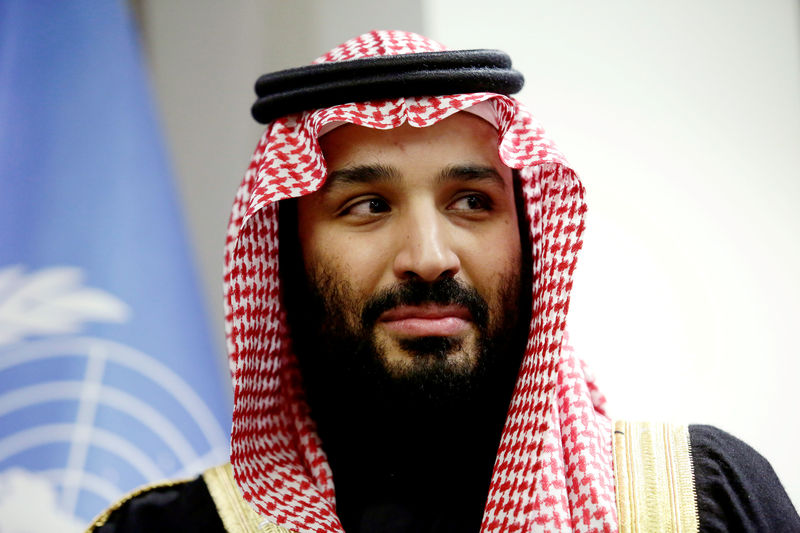(Bloomberg) -- Saudi Arabia wants to get oil prices near $80 a barrel to pay for the government’s crowded policy agenda and support the valuation of state energy giant Aramco before an initial public offering.
In conversations with OPEC delegates and oil market participants, Saudi officials had been careful to avoid pinpointing an exact price target. Yet people who have spoken to them said the inescapable conclusion from the conversations was that Riyadh is aiming for $80.
The private discussions, relayed by several people who met the Saudis over the last month and asked not to be named to protect their relationship with the kingdom, chimes with the hawkish tone in public from Saudi officials.
Oil extended gains. London’s benchmark Brent crude futures rose as much as 2.3 percent to $70.21 a barrel.
In an interview with Time magazine last week, Saudi Crown Prince Mohammed bin Salman made the first public statement linking his expectation of higher oil prices with the timing of the initial public offering of Saudi Aramco.
"We believe oil prices will get higher in this year and also get higher in 2019, so we are trying to pick the right time," he told the magazine in reference to the IPO. Riyadh, which initially targeted the second half of 2018 for the listing, is now aiming for next year.
Cutting Inventories
Saudi Oil Minister Khalid Al-Falih has also sounded increasingly hawkish in public, suggesting that OPEC should keep tightening the oil market even through the cartel is close to meeting its goal of cutting crude inventories in industrialized countries back to their five-year average.
In an interview in New York last month, he said today’s price near $70 a barrel hadn’t been sufficient to stimulate investment in the industry, which remains significantly below levels seen before 2014’s price crash.
"That tells me that the pricing signals that have come out of the recovery haven’t been sufficient," he said, without giving a target for prices.
The Saudi Ministry of Energy didn’t immediately respond to a request for comment.
Domestic Policy
Riyadh’s desire for higher prices is driven by domestic policy imperatives. Although Saudi Arabia’s budget deficit has narrowed sharply as oil has recovered, Prince Mohammed has set out an ambitious and expensive economic and social reform program. He also needs to pay for the kingdom’s increasingly drawn-out military entanglement in Yemen.
While there’s little indication the Saudis are prepared to deepen their oil cuts to achieve $80, at the very least the aspiration suggests they’ll keep with the current measures until the price goal is closer. Riyadh is counting on declining Venezuelan oil production, the likely imposition of new U.S. sanctions on Iran, and continued demand growth to absorb U.S. shale production.
The Saudi strategy, which isn’t universally shared within OPEC, the same people said, carries risk as it could further boost U.S. production, already at a record of 10 million barrels a day.
Current oil prices below $70 a barrel have already propelled drilling in the prolific shale regions of the Permian, Bakken and others. The number of oil rigs in operation in the U.S. last week rose to 808, up nearly 20 percent from a year ago and the highest since 2015.
So far, Riyadh has public support from other OPEC countries for continuing the cuts, but privately some nations are increasingly worried that Saudi Arabia is trying to boost oil prices too high, the same people said.
For the kingdom, the most important thing is to keep Russia supporting the current OPEC and non-OPEC production cuts. So far, Moscow has backed Riyadh, at least in public, with Russian Energy Minister Alexander Novak saying that the alliance between the cartel and Russia that coordinated historic oil-output cuts could last "indefinitely."
(Updates with oil price.)
